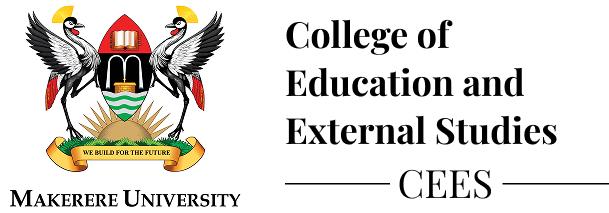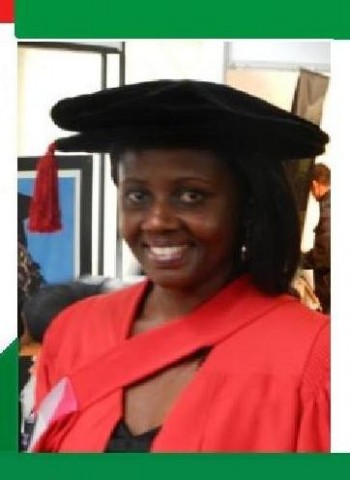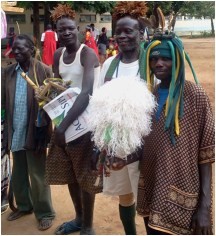Dr Janice Desire Busingye, a staff member at the School of Distance and Lifelong Learning recently graduated with a PhD in Adult Education from the University of KwaZulu– Natal. Janice has shared with us the abstract for her research.
Title: Reducing Risk: Local Knowledge for livelihoods security. A case of Ugandan small holder farmers
My research examined knowledge and practices of farmers supported by Volunteer Efforts for Development Concerns (VEDCO), a non- governmental organisation in Central region of Uganda. Farmers in VEDCO were trained in modern farming methods, and were supposed to apply them on their farms. I worked with farmers over a period of eight months, which is a full agricultural year, to understand how farmers negotiated their way around risk in different seasons of the year using their own knowledge. I was interested in understanding the knowledge they drew on to survive.
The study was qualitative and employed a case study methodology. It relied on participant observation, focus group discussions, seasonality
calendars, trends’ analysis, informal interviews and document review to collect data.
The livelihoods of farmers and the extension education intervention by VEDCO provided an opportunity to understand the concept of knowledge, risk and livelihoods security. In this regard, the theories of Paulo Freire (1972, 1973, 1973a,1985), Ulrich Beck (1992, 1998, 2000) and Robert Chambers (1983, 1991, 1995) formed the framework for theorising knowledge, agricultural extension education, risk and livelihoods in this research.
The thesis engages with what constitutes livelihoods for poor people and what that means for survival and risk reduction. In the discussion, it
becomes evident that knowledge for poor people is worthwhile if it enables them meet their livelihood needs. In the discussion it also becomes apparent that poor people’s livelihoods security is dependent on many aspects, and they pursue livelihoods security in a multi-disciplinary,
negotiated manner that incorporates all those aspects. And unfortunately, sometimes the way modern agricultural extension pedagogy is planned and executed puts livelihoods at risk in a context where farmers’ own local knowledge is not enough to confront the challenges they have to confront. The gap created by both local and modern knowledge processes resulted into the emerging of a subsistence risk society (Beck, 1992, 1998).
The thesis concludes with a discussion of a concept of really useful agricultural extension education drawn from the idea of ’really useful knowledge (Jane Thompson, 1997). The emerging really useful agricultural extension education is drawn partly from the livelihoods’ analysis of poor people. And partly RUAEE is drawn from an emerging understanding developed, that adult education is not just about meeting needs, rather it is about confronting systems and structures that enable social injustice and livelihoods insecurity.




